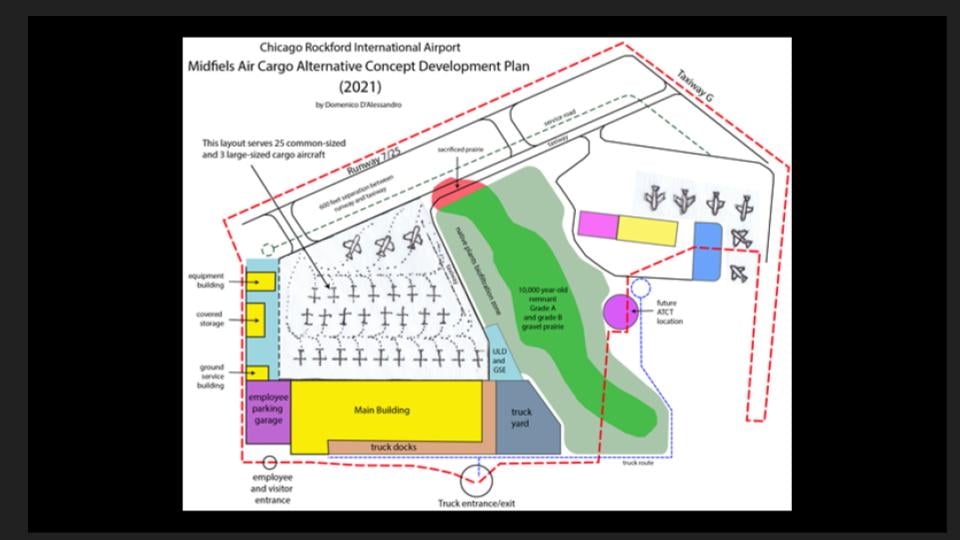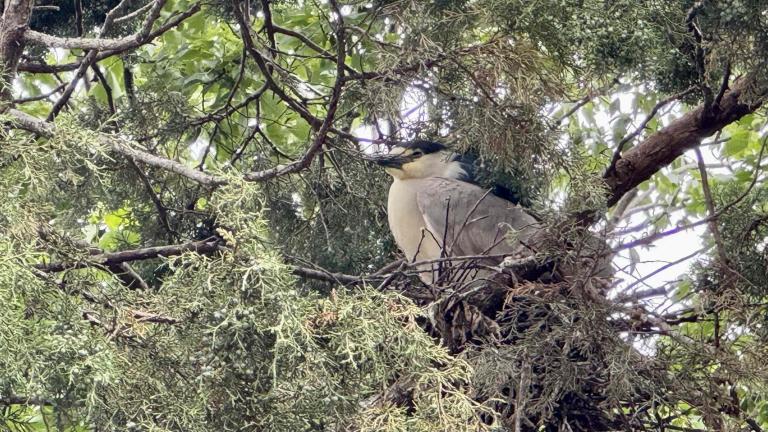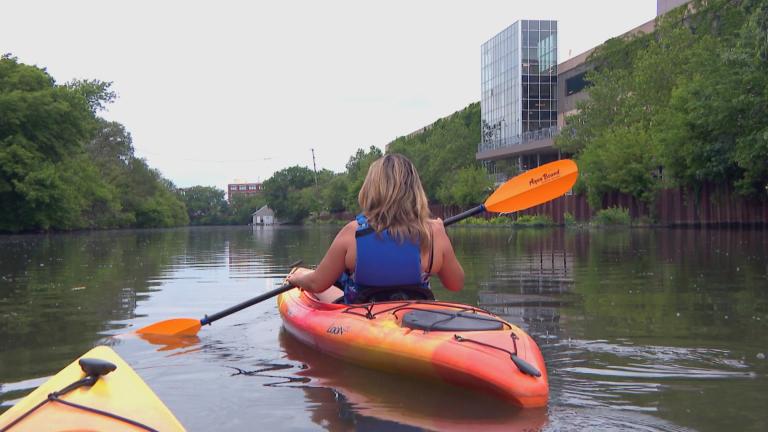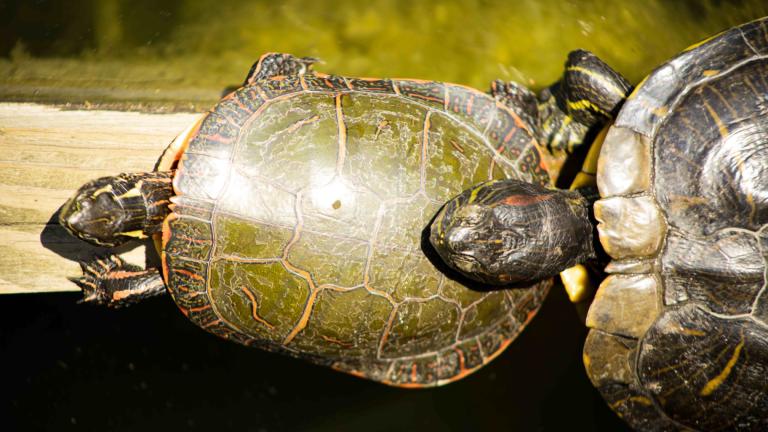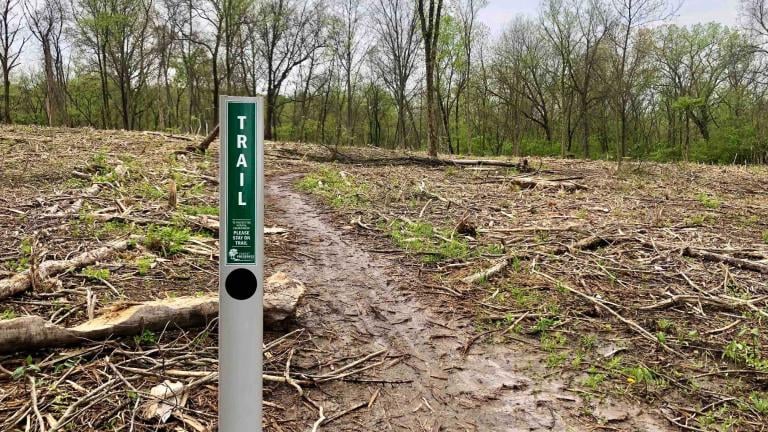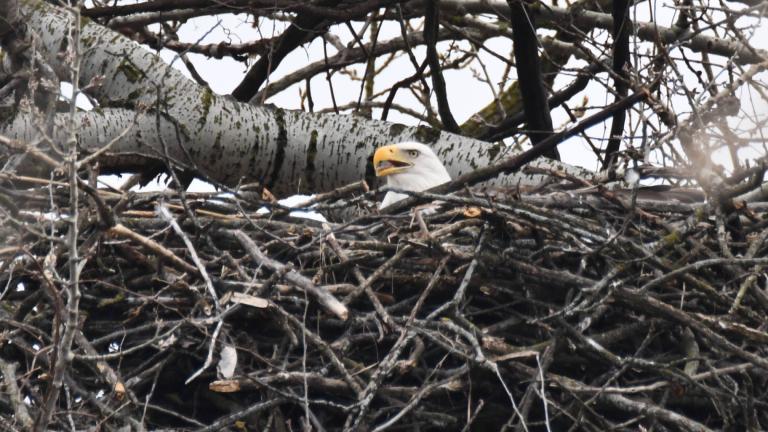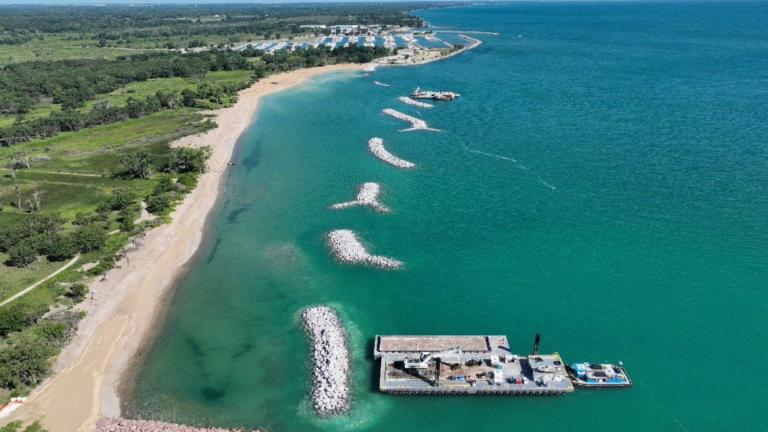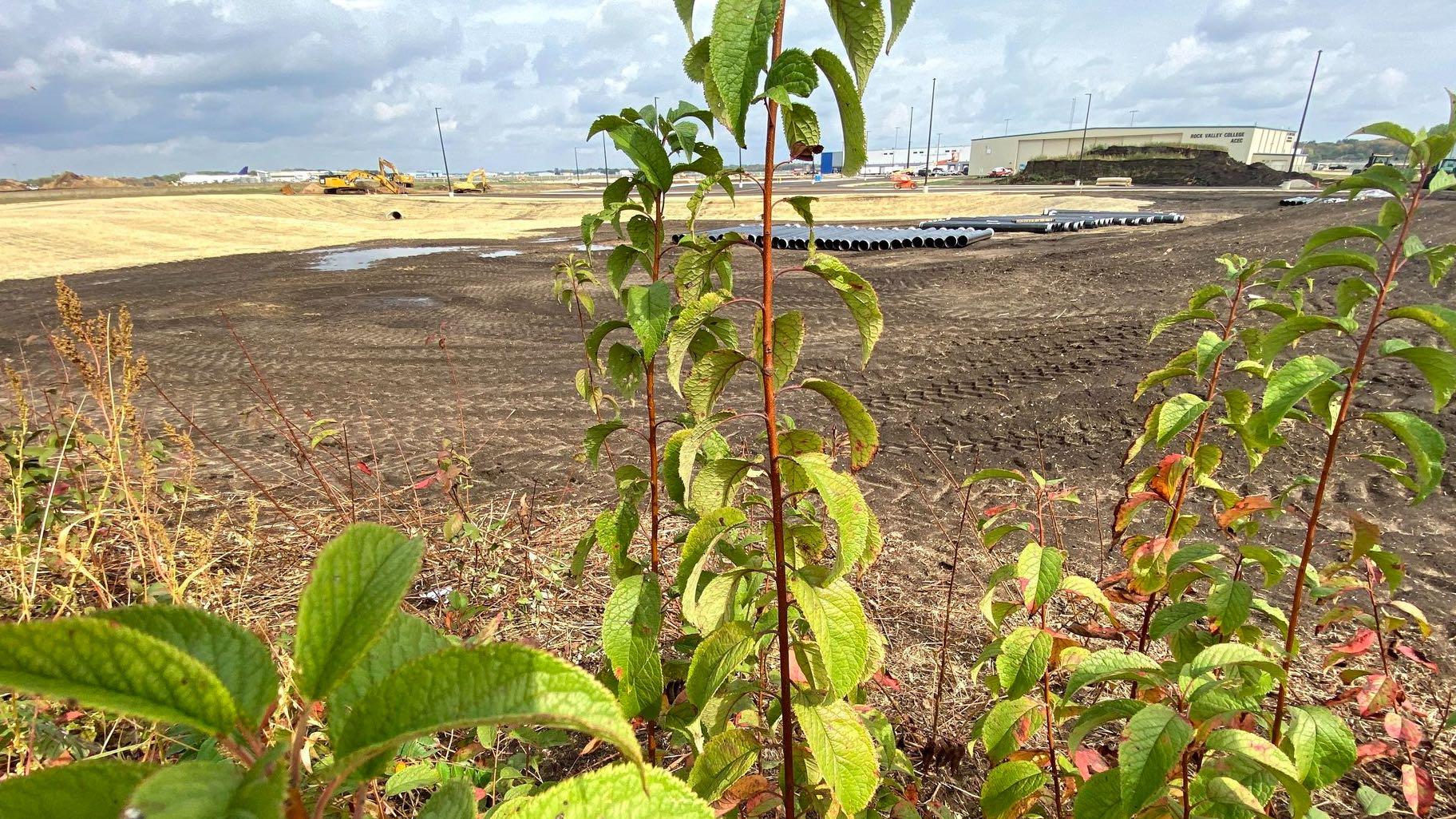 Construction on the Rockford Airport cargo expansion has come right to the edge of Bell Bowl Prairie. (Courtesy of Cassi Saari)
Construction on the Rockford Airport cargo expansion has come right to the edge of Bell Bowl Prairie. (Courtesy of Cassi Saari)
Most battles between development and conservation, or the economy and the environment, are pitched as an either-or.
Supporters of the movement to save Bell Bowl Prairie, a small patch of rare remnant prairie situated within the boundaries of Chicago Rockford International Airport, continue to hold out for a win-win.
At a meeting held Tuesday evening and attended by 150 people (counting both in-person and online), an alternative layout was presented for the expansion of the airport’s cargo facilities. Landscape architect Domenico D’Alessandro demonstrated how a road, currently planned to plow through Bell Bowl, could be rerouted.
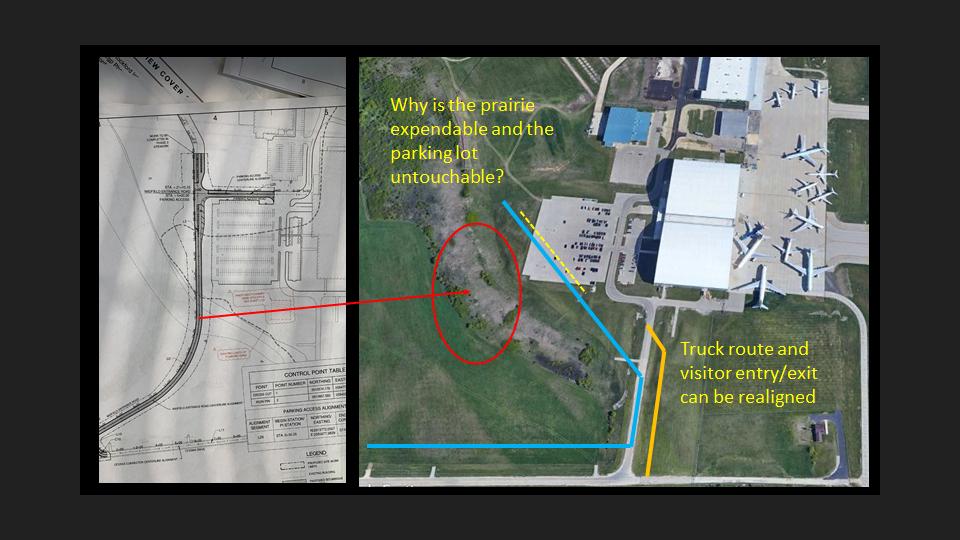 Renderings demonstrating the road (left) that would run through Bell Bowl Prairie as part of the Rockford Airport cargo expansion. (Courtesy of Save Bell Bowl Prairie)
Renderings demonstrating the road (left) that would run through Bell Bowl Prairie as part of the Rockford Airport cargo expansion. (Courtesy of Save Bell Bowl Prairie)
“The answer is simple,” he said. “Let’s realign this road. All this road has to do is skim around (the prairie). That’s all we have to do.”
Amy Doll, director of Friends of Illinois Nature Preserves, reiterated the stance of Bell Bowl backers: “Saving Bell Bowl doesn’t mean development doesn’t happen.” The coalition of conservationists respects the airport’s economic value to Rockford and the surrounding region, she said, but “there’s a better way to do this.”
Still, with bulldozers stationed at the prairie’s fence, the time to present airport officials with options may have long passed.
Rockford is ranked as the 17th largest cargo airport in the U.S. and the fastest growing in the world, with business up 300% over the past five years, officials say. The cargo expansion — a cornerstone of the airport’s strategic plan — was cleared for takeoff years ago, backed by federal funds, and is barreling down the metaphorical runway.
In June 2018, a contract for design of the nearly 100,000-square-foot cargo facility was approved. Construction began October 2020. In January, $50 million in bonds were issued, and in February, the announcement of a seven-year lease agreement for the facility. This past July, Emirates and Qatar airlines were reported as new cargo clients. These and other milestones can be found in the published meeting minutes of the Greater Rockford Airport Authority’s board of commissioners.
Along the way, airport officials say they dotted all their i’s and crossed all their t’s in terms of following guidelines and rules related to Bell Bowl, which is listed on the Illinois Natural Areas Inventory as an “outstanding,” high-quality gravel prairie, fewer than 22 acres of which exist in Illinois in total.
The airport’s outreach included “public notices, public meetings, and notices to all media in the area,” Zack Oakley, deputy director of operations and planning, said in a statement provided to WTTW News. “As required, RFD (Rockford Airport) completed the Environmental Assessment in 2019 and ultimately received a ‘Finding of No Significant Impact’ from the FAA in November 2019. Construction has since commenced in areas that were included in the 2019 Environmental Assessment.”
Bell Bowl isn’t referenced in meeting minutes, but notes from the August 2018 meeting briefly state: ”We’re working on environmental studies in order to move forward with any midfield construction in the future.”
Those studies were severely flawed, prairie proponents say, and they also dispute the airport’s version of its communication efforts regarding the cargo expansion.
The two sides have been at a stalemate since August, when the federally endangered rusty patched bumble bee was spotted at the prairie. The airport agreed to pause construction in the area until Nov. 1, a date pegged as the end of the bee’s foraging season. A plan to relocate two state-listed endangered native plants by Nov. 1 — the large-flowered penstemon and the prairie dandelion — is being coordinated with the Illinois Department of Natural Resources, Oakley said.
IDNR couldn’t immediately provide details on the relocation plan.
While the airport pushes forward with its construction timeline, the Save Bell Bowl Prairie coalition continues to pursue legal recourse but is relying largely on a grassroots campaign to drum up support for, if nothing else, a chance to press pause.
“Our immediate goal is that on Nov. 1, bulldozers don’t go through a high-quality area,” said Doll.
Thousands of letters have been sent to elected officials, including U.S. Sen. Dick Durbin, whose record straddles both sides of the issue: His environmental advocacy recently earned him a conservation leadership award from Openlands, while airport meeting minutes cite the senator as “instrumental in the growth at RFD.” (The senator’s office hasn’t responded to multiple WTTW News requests for comment.)
Representatives from the Illinois Environmental Council say the action is “moving the needle,” minimally in terms of putting Bell Bowl on legislators’ radar, but has yet to produce concrete results.
As the clock ticks on Bell Bowl and its loss creeps closer to reality, its supporters are left with the existential question of why, with climate change crises at hand, these 11th-hour scrambles are still necessary.
“Why is the prairie expendable?” D’Alessandro asked. “Why is this happening? It boggles the mind.”
Contact Patty Wetli: @pattywetli | (773) 509-5623 | [email protected]

